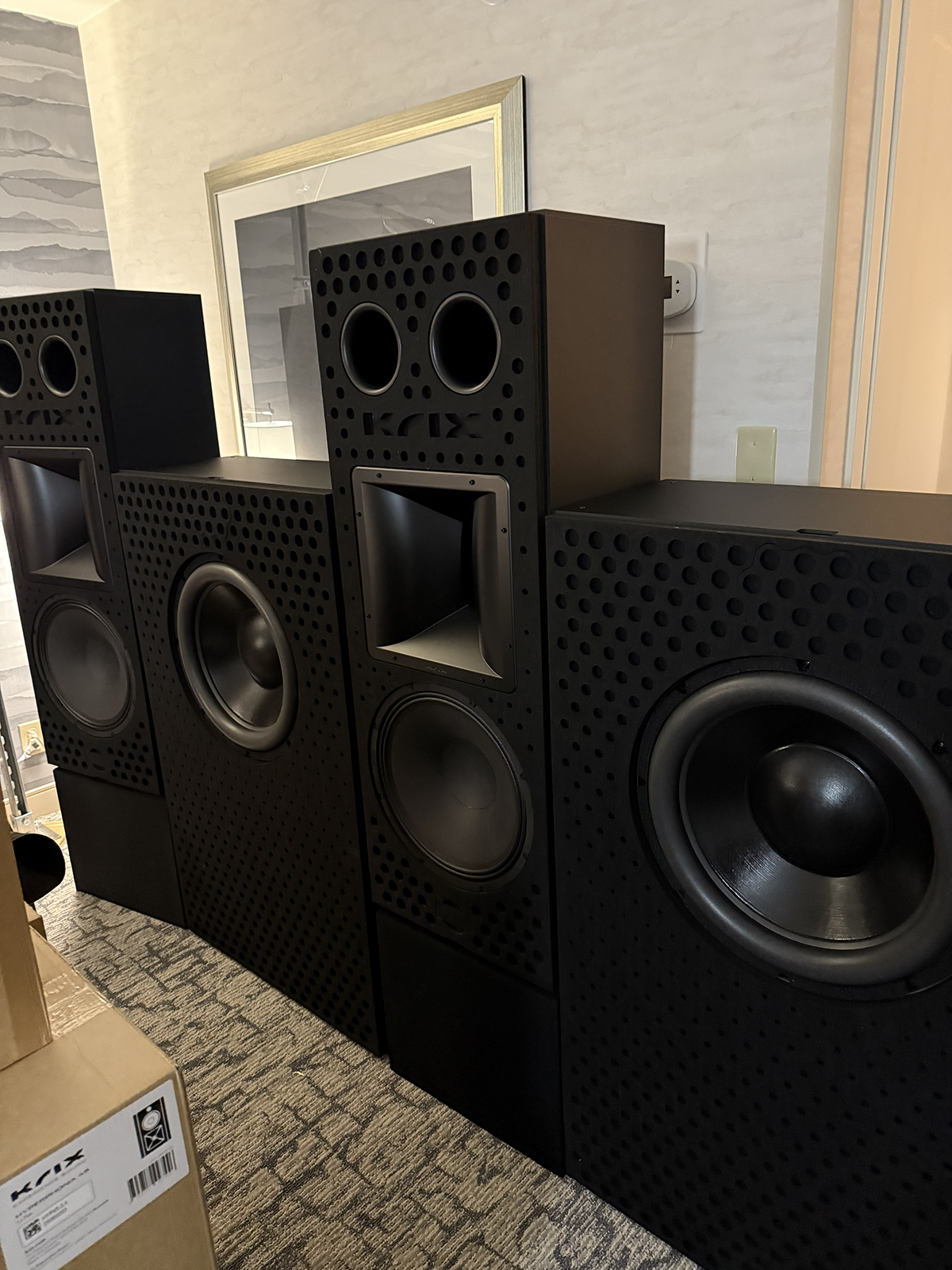Buy one component and save 10% on up to 2 cables. Buy 2 components and get 4 free cables. Free shipping on USA orders over $700.
Buy one component and save 10% on up to 2 cables. Buy 2 components and get 4 free cables. Free shipping on USA orders over $700.
DAC2 HGC Review - Hugh Robjohns, Sound On Sound
by Benchmark Media Systems October 01, 2013
DAC2 HGC - "This Company is Called Benchmark for a Reason"
"It ... features a clever hybrid gain control (accounting for the 'HGC' in the product title) whereby analogue inputs are attenuated with a motorised analogue potentiometer, and digital inputs are attenuated by a 32-bit digital attenuator, which is controlled by the same rotary pot. The actual D-A conversion (which can also handle DSD streams) is performed by the latest ESS Technology 'SABRE32' reference DAC chip, in a configuration that differentially sums the outputs of four balanced D-A converters together to maximise linearity, signal-to-noise and dynamic range performance."
"I plumbed the DAC2 HGC into a number of different systems, replacing my usual monitoring controllers (Benchmark DAC1, Grace Design M902, Bryston SP1.7, Crookwood M1) without problem. I listened to a wide variety of commercial material sourced via CD, DVD-A, SACD and Sonus media servers, as well as from my own recordings and mixes on SADiE and Reaper."
"The most noticeable and dramatic sound improvement over all of my other D-A converters was the complete absence of peak distortion when listening to commercial CDs! Most current and 're-mastered' music contains significant inter-sample peaks, and that inevitably cause distortion to varying degrees through clipping of delta-sigma converter filters."
"The original DAC1 was aimed squarely at professionals, but was subsequently embraced by the audiophile market. It remains an excellent D-A converter, and its ability to completely isolate interface jitter sets it apart from most D-As, including some of the much more costly models. However, digital audio technology continues to make incremental improvements, and in the eight years since I reviewed the DAC1 the state of the art has clearly advanced. The DAC2 HGC is undoubtedly a major step forward in technical performance compared to its forebear and, although it costs almost double the price of a DAC1, it does also offer a lot of additional features and facilities."
- Hugh Robjohns, Sound On Sound
Read the full review →Also in Reviews

CAF 2025 Best of Show - Krix Home Theater - Powered by Benchmark
by Benchmark Media Systems November 24, 2025

"The setup used ... ten Benchmark AHB2 amps, and a Storm Audio ISP Elite 24 MK3 surround processor."
"The system delivered serious punch and clarity."
"During the car chase and gunfight sequence from No Time to Die, the Krix setup managed to convey the intensity and scale of a far larger theater—tight, immersive, and controlled. Proof that with the right engineering and setup, even a small room can deliver big-cinema energy."
- Brian Mitchell, ecoustics.com

AHB2 - Stereophile 2025 Recommended Component - Power Amplifiers
by Benchmark Media Systems November 23, 2025

AHB2 - Receives Stereophile's Top Rating for Power Amplifiers
"An extraordinary amplifier."
- John Atkinson
"Much more apparent low-level detail in already-familiar recordings"
- Kalman Rubinson

KRIX 11.6.6 Home Theater - Powered by 10 Benchmark AHB2 Amplifiers - CAF 2025
by Benchmark Media Systems November 22, 2025
 "The final visual and audio results in this room were indeed spectacular."
"The final visual and audio results in this room were indeed spectacular."
"Complete and total immersion, with clean, clear sonics that were not fatiguing at all."
- Carlo Lo Raso, SECRETS of Home Theater and High Fidelity



